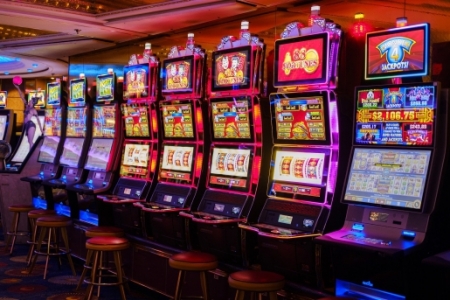Obtaining a license for slot machines (online slot machines)

A slot machine license is an official authorization from a regulatory authority that allows the development, distribution, or use of slot machines in legally operating online or land-based casinos. This license confirms that the games meet standards for fairness, security, and player protection.
In many countries, opening a physical casino is prohibited due to strict legal regulations. As a result, most entrepreneurs today launch their gambling businesses online.
However, even in the virtual space, gambling companies must comply with a wide range of rules and requirements.
To operate legally, a business must obtain the appropriate license. Our company works with a broad network of international jurisdictions.
At Law&Trust, our legal team provides comprehensive support for obtaining gambling licenses.
With years of experience in gambling regulation, our specialists offer efficient, high-quality legal assistance at every stage of the licensing process.
We partner with reputable jurisdictions that have strict regulatory standards. While these licenses may be more demanding to obtain, they are significantly more respected and trusted by players.
Why do you need a slot license?
A slot machine license is a legal requirement for developers, casino operators, and content aggregators operating in the gambling sector.
Most importantly, it allows the lawful distribution and operation of slot games — without a license, a provider cannot sell its games to casinos, and operators risk penalties for hosting unlicensed content.
The license also serves as a guarantee of fairness and security. It verifies that the random number generator (RNG) functions without interference, the return-to-player (RTP) rate matches the declared percentage (e.g., 96%), and the game mechanics are free from fraudulent manipulations, such as secretly altered odds.
Licensing is crucial for cooperation with financial institutions. Without it, payment systems like PayPal, Visa, Mastercard, and various payment processors will refuse to work with the casino. Even crypto platforms and e-money services like Advcash require proof of legitimate operations.
Licensing is also mandatory to enter regulated markets such as the EU, USA, and UK. In countries like Germany, Sweden, and the Netherlands, unlicensed games are often blocked. In the United States, operating an unlicensed gambling business may result in criminal charges.
A valid license also protects your business from significant risks — including website blocks by regulators or hosting providers, legal claims from players over non-payment or fraud, and refusals to cooperate from leading operators like Betsson or LeoVegas.
Who needs a slot license?
- Game software providers (e.g., NetEnt, Pragmatic Play), to legally distribute their slots to casinos.
- Casino operators, to host and offer games to players.
- Game aggregators, who compile and distribute games from multiple developers.
Types of slot licenses
- Developer (provider) license — allows creation and distribution of slot games
- Casino operator license — authorizes the offering of slot games to players (games themselves must also be licensed)
- RNG and RTP certification — confirms compliance with technical fairness standards
Requirements for a slot license.
To legally develop and distribute slot machines, companies must meet a number of stringent requirements, which vary by jurisdiction. Key requirements typically include:
- Company registration — in the country where the license is sought. Some jurisdictions, like Malta, also require a physical office.
- Share capital — the required amount depends on the jurisdiction.
- RNG certification — issued by accredited labs (eCOGRA, iTech Labs, GLI), along with RTP validation (within a 1% deviation from the stated rate), and implementation of data protection protocols.
- AML/CFT compliance — the applicant must adhere to anti-money laundering and counter-terrorism financing regulations.
Documents for obtaining a slots license
A standard document package includes:
A business plan with financial forecasts;
Founders’ documents (e.g., criminal record checks, proof of capital origin);
Technical documentation for the software;
Privacy and data protection policies.
Steps to obtain a slot license
First, you need to choose a jurisdiction. Our experienced Law&Trust specialists will help you with this point.
Then the applicant prepares the required documentation and undergoes audits in accredited laboratories.
Once all procedures related to the audits are completed, an application is submitted to the regulatory authority. The application processing time depends on the jurisdiction, but on average takes from 4 to 12 months.
Law&Trust International provides comprehensive legal and consulting support at all stages of obtaining a license for the development and distribution of slot machines (slots). Our experts with many years of experience in the gambling industry will help you legalize your business in the optimal jurisdiction with minimal time and financial costs.




























































